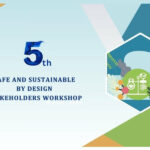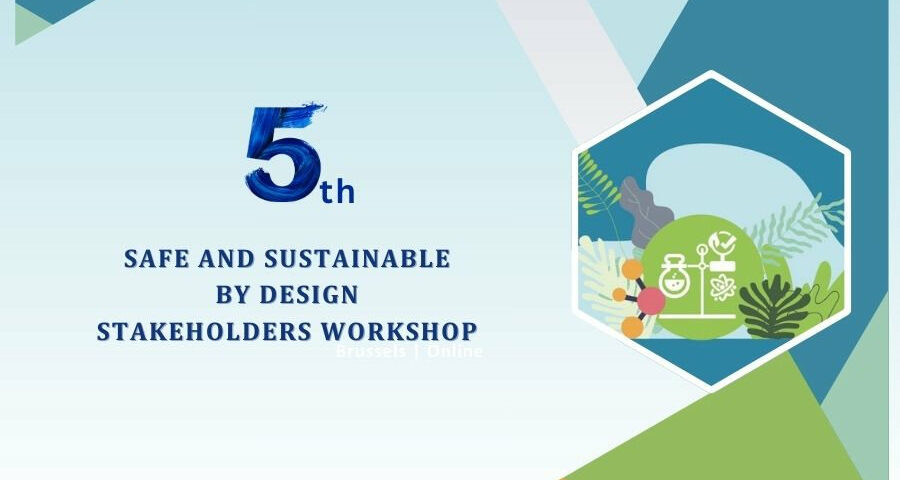
5th Stakeholder Workshop on SSbD – December 2024
Dicembre 4, 2024
Advancing Water Treatment with SSbD Principles
Gennaio 23, 2025Summary of the 5th Stakeholder Workshop on SSbD – December 2024
The 5th Stakeholder Workshop on Safe and Sustainable by Design (SSbD) convened experts from the European Commission, industry, academia, and member states to discuss the evolution of the SSbD framework. The event explored insights from the second framework testing period, stakeholder feedback, and project results, emphasizing collaboration for safer and more sustainable materials, chemicals, and products.
Key Highlights
Policy Updates and Testing Period Insights
• Representatives from DG Research & Innovation, DG Environment, and the European Chemicals Agency (ECHA) outlined recent policy developments and shared insights from the second SSbD framework testing period.
• Giulio Bracalente (Joint Research Centre, JRC) presented findings from the testing phase, emphasizing lessons learned and areas for improvement.
Case Studies and Project Updates
• ASINA: Focus on integrating Safe-by-Design principles into nano-enabled product development, ensuring safety, functionality, and sustainability throughout the lifecycle.
• SURPASS: Demonstrate innovative technologies for recyclable and sustainable polymeric materials, targeting the building, transport, and packaging sectors.
• IFRA & BASF Case Study: Apply SSbD principles to the fragrance industry, using methyl salicylate as a pilot example.
• EMPA: Explore the framework's application to graphene-based materials to ensure their safety and sustainability.
• SPINE: Promote climate neutrality by integrating sustainable public transport systems with mobility services.
• IRISS: Develop roadmaps for implementing SSbD practices across value chains in sectors like construction, energy, and packaging, aligned with the EU Green Deal.
• greenSME: Support SMEs in adopting sustainability practices through assessment tools and financial support.
Stakeholder Perspectives and National Approaches
• SMEs and industry representatives shared practical insights into SSbD implementation, including challenges and opportunities.
• Member states such as the Netherlands, Denmark, and Austria highlighted national strategies and initiatives supporting SSbD, including the establishment of expertise centers and policy papers.
Looking Ahead
The workshop concluded with breakout sessions and discussions on refining recommendations and sustaining the framework's use. Future priorities include enhancing stakeholder engagement, aligning tools with innovation processes, and addressing challenges like animal testing and material substitution. The event underscored the importance of collaborative efforts across sectors to ensure the successful implementation of the SSbD framework.
Conclusions
Discussions at the meeting were far more advanced than at the same event in 2023, with more clarity in particular related to the design phase of the framework. Through the presentations and subsequent discussions, it was clear that the many case studies so far performed (and some still ongoing) are wide in scope and demonstrate that the SSbD framework is working well. There is still work to be done in reducing the cost, data and resources required of enterprises to enact SSbD, this implies the provision of easy-to-use tools for end users, some of which were discussed during the meeting. Ways of addressing the arbitrary nature of some SSbD solutions also needs to be developed.
Overall, it is clear that a SSbD community is emerging and the concept of SSbD is gaining momentum and recognition. It has so far had strong support from stakeholders and this needs to continue for the framework to be fully adopted and to become operational – the strong attendance at the workshop, both in person and online, indicates that the necessary future support is there. Affordable SSbD chemicals and materials will enhance the EU economy and will be an advantage to EU citizens. Member states are also moving in the SSbD area, and collaborative activities are continuing across directorates and agencies to further the SSbD implementation. The JRC will report back with revised recommendations related to SSbD by the end of 2025.

